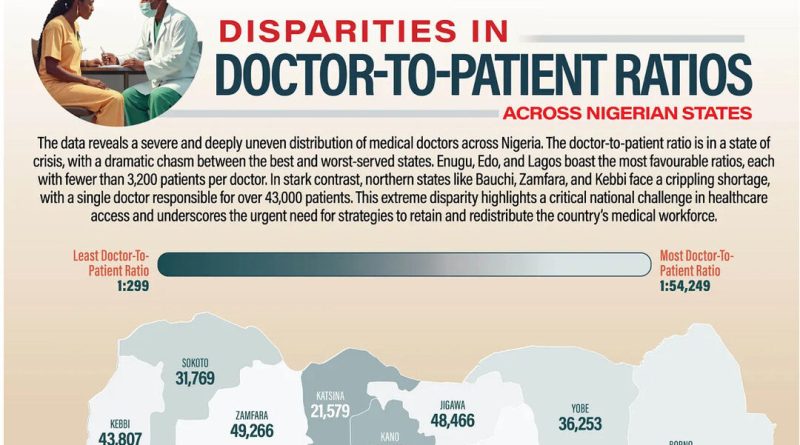Five years after COVID-19, Nigeria still unprepared for health crisis
A new report by SBM Intelligence has revealed that Nigeria’s health system remains critically fragile five years after the COVID-19 pandemic, with no state scoring even 30 per cent preparedness.
The report, titled “The SBM Health Preparedness Index 2025”, released this week by the geopolitical and socio-economic research firm, assessed the capacity of all 36 states to respond to health emergencies.
It found that Abia State ranked highest with 26.85 points, while Katsina (12.54), Kebbi (13.31), and Ebonyi (12.85) were among the lowest-performing states.
During the COVID-19 pandemic, Nigeria, like most African countries struggled to contain infections and manage logistics due to inadequate testing capacity, limited hospital infrastructure, and a shortage of critical health workers and supplies.
The new report shows that those same systemic weaknesses persist today.
Nationwide system under pressure
The report highlights an overstretched healthcare workforce, with an average of 15,361 patients per doctor nationwide, far below the World Health Organisation (WHO) benchmark of one doctor per 1,000 people.
In comparison, Enugu, Edo, and Lagos have fewer than 3,200 patients per doctor, while northern states such as Bauchi and Zamfara have more than 43,000.
The report links this imbalance to the ongoing “Japa Syndrome”, which has seen thousands of Nigerian health professionals migrate abroad in search of better pay and working conditions.
It warns that the resulting workforce shortage is fuelling longer hospital queues, overworked doctors, and rising preventable deaths, particularly in rural areas.
Uneven health budgets
According to the report, budget performance remains inconsistent across states.
While Lagos leads nominally with N221 billion allocated to health, Bauchi, Kaduna, and Kano each dedicate more than 15 per cent of their total state budgets to the sector, among the highest in the country.
Conversely, Akwa Ibom (4.3 per cent) and Imo (3.5 per cent) rank among the lowest, highlighting what the report describes as weak political commitment to public health.
Measured per capita, Abia ( N22,926) and Ogun (N21,051) stand out as the top spenders, while Adamawa and Imo allocate less than N4,500 per resident.
The report notes that political will, rather than resources, often determines health outcomes across Nigerian states.
Regional inequalities persist
The report indicate that Southern states dominate the top half of the preparedness rankings, benefiting from stronger investment and better access to healthcare professionals.
It however, shows that for the first time, a southern state, Ebonyi, fell into the bottom five, indicating that fragility is no longer confined to northern regions.
The report also noted that northern states face multiple health challenges, including poor infrastructure, high infant mortality, and large household sizes. It warned that without targeted investment, the disparities risk widening further.
Recommendations
The organisation urged governments to act on three key fronts, including halting the ongoing brain drain by improving conditions for health professionals, increasing transparency and equity in health budgeting and prioritise the establishment of a national framework to redistribute medical personnel and resources across states.
The report cautioned that without these reforms, Nigeria risks facing the next health crisis in the same vulnerable state it was during COVID-19.
SBM Intelligence is an Africa-focused geopolitical research and strategic communications consulting firm.
It provides political, social, economic, and market data, as well as big data analytics, to clients in government and business.
Since 2013, it has conducted research and offered data-driven solutions across Nigeria, Ghana, Ivory Coast, Kenya, South Africa, the UK, France, and the US.


